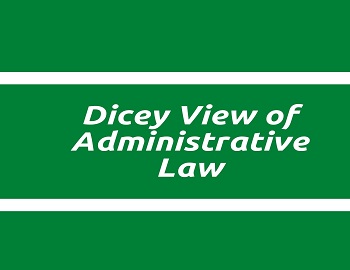Table of Contents
Concept of Audit:
An audit is a systematic examination of the records of an organization with a view to ascertain, verify and report on the nature and quality of the financial transactions made by the organization. It exists as a very meaningful check on the administration. So much so that it can be legitimately said that audit acts as a “watchdog” of the nation’s financial interests.
The administrative structure of a state is so vast and its operations so complex that it is impossible for an ordinary tax-payer to know whether the money contributed by him for running the administration of the state is being properly used or not. This can be judged only through a systematic examination i.e. auditing of the accounts of the administration. The audit highlights losses, wastes, and under-utilizations of capacity due to improper decisions at the appropriate levels. It is one of the most important instruments of parliamentary control over the finances of the country. It stands designed as an effective instrument of control through which misuse of public money can be ascertained and remedial steps can be undertaken.
Audit- Meaning and Definition:
The word ‘Audit’ is derived from the Latin word ‘Audire’ which means to help. Originally, the accounting parties were required to appear before the auditor, who heard the accounts. The person whose duty was to check such accounts came to be known as the Auditor.
In simple words, it can be said that “Auditing is a systematic examination of the books and records of a business or other organization, in order to ascertain or verify and to report up[on the facts regarding its financial operations and the results thereof.”
According to James C. Charlesworth, “Audit means the process of ascertaining whether the administration has been spending its funds in accordance with the terms of the legislative instrument which appropriated the money or not.”
“Audit is an examination and verification of accounts after transactions are completed in order to discover and report to the legislative body of any unauthorized, illegal or irregular expenditure, any financial practices that are unsound, and whether the administration has faithfully discharged its responsibility or not.”
In other words, Audit means an examination of accounts with a view to determine the correctness of these accounts and of the transactions they embody. The test of correction applied may be one of formal legality only, or also of economy propriety.
An audit is an instrument of financial control. It acts as a safeguard against extravagance, carelessness, and fraud upon public money and other assets of the government. It ensures that the accounts being maintained may truly represent the actual facts and fiscal staff of affairs.
Dr. M. P. Sharma observes that a thorough-going audit should be an audit in respect of
- laws, rules, and regulations.
- appropriations as voted in the budget.
- sanctions (behind transactions).
- canons of financial propriety.









Comments (No)